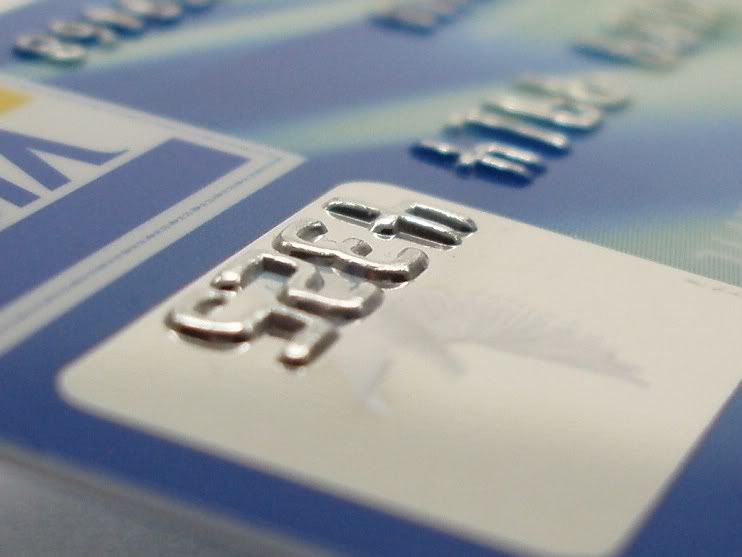Saving and enjoying your money at the same time
By Randell Tiongson on November 3rd, 2015

I have met a lot of people, mostly young who always laments that its hard to save money because they it prevents them from having fun. They would tell me YOLO! You Only Live Once — well, I agree but that also means to have wisdom since you only live once.
While you’re young (even when you’re not!), it’s natural to want to enjoy your money—sometimes at the expense of your financial well-being. But being smart about money isn’t all about penny-pinching and being kuripot (stingy). There are ways to save for your future while still having a portion for guiltless spending:
1) Pay Yourself First. Paying yourself first is the key to enjoying your salary while still saving for your future. Why? Because a lot of people spend first, then save what’s left. It’s funny how these people find at the end of the month, there isn’t much to save, if there’s even anything left. That’s paying yourself last.
Instead, before you do anything with your paycheck, immediately put a part of it away for saving or investment. If you do this automatically, you might not even notice it. Many banks have an auto-save feature, where every month (or every two weeks—you can set the time yourself) a certain amount is automatically taken from your payroll account and transferred to a savings account. Some also have features where you can automatically subscribe to a UITF or mutual fund.
Paying yourself first has many advantages. By saving first before spending, you won’t be tempted to skip saving for the month. This, in turn, will ensure that your savings grow consistently without you having to work too much for it. Once you see your savings grow, you’ll be more likely to add to it, and then later explore more options for your money to grow.
Twenty percent of your paycheck is a good portion to save every month. If you can’t afford that, start small (even 5 percent is fine) and increase your ‘paying yourself first’ money over time.
2) Budget. Knowing where your money goes will help you save more of it. Also, you may surprise yourself when you find out just how much you spend on expensive coffee every month. If you don’t already have a budget for the next month, track your spending. Try to see where every peso of your salary goes so you know what you’re spending the most on. Then, after a month, sit down and see what you spend on the most, what you could afford to spend less on.
Contrary to what you might think, having a budget can actually help you feel more free about spending—because you know what you can afford, and you know that the rest of your needs have been taken care of already. So pay yourself first, then pay for your needs, then buy that frappuccino and enjoy it guilt-free.
There are many ways to budget: the ‘envelope’ budget, where you set an amount for every category of spending; the 50/30/20 budget, where you spend 50 percent for needs (bills, rent, groceries), 30 percent for wants, and 20 percent for savings and debt payments; or the even easier 80/20 budget, where 20 percent goes to savings and 80 percent goes to everything else. It may take a while for you to find a budgeting style that fits you, so feel free to experiment—as long as you’re putting something toward savings!
3) Set aside some money every month for guiltless spending. For a lot of people who are starting to budget, they begin to feel guilty every time they spend money on a ‘want’ and not on a ‘need,’ even if they’re already putting money toward savings and investments. Just because you’re saving for the future doesn’t mean you can’t enjoy something for yourself.
To avoid needless guilty feelings, set aside a small portion of your income for spending on whatever you want. As long as you don’t exceed that limit, you don’t have to feel bad about your purchase. If you follow the ‘pay yourself first’ rule and you’ve already paid your bills, why should you feel bad about buying a new pair of shoes, especially if you already set aside money for it?
If you have wants that are more expensive, such as a nice vacation or a new gadget, you can budget for it little by little every month, so that when the time comes, you can pay for it in full.
Saving doesn’t have to be a burden. By following these steps, millennials can have their cake and eat it too—as long as they save some of that cake for the future first. Do not forget that we need to be wise with money, and balance is key. While it is ‘fun’ to be enjoying your money today, you will suffer in the future if you keep on spending every peso you make.
Remember, your older you will either thank or curse your younger you.
Personal finance for Yuppies
By Randell Tiongson on April 10th, 2013
When should one be serious about finance? The earlier, the better. When you understand about time and investing, you will really want to start being money smart from the day that you get your first paycheck (or your profit) right? The reality is, young people often start being financially astute much later than they should — and I’m speaking from personal experience. I really have a few regrets of my youth (seems so long ago), the only ones I can think of would mostly relate to financial issues — not saving as much, borrowing too much and not investing enough.
Here’s a very helpful blog written by a good friend of mine, Jesi Bondoc. Jog, as we fondly call him, is not only a Registered Financial Planner (proud teacher I am), he is also a certified yuppie himself. When I see young people like Jog becoming more and more financially enabled, I am hopeful that the Pinoys will be financially at peace sooner than later.
——————————————-

PERSONAL FINANCE FOR YUPPIES
Jesi Bondoc, RFP
I had the privilege to speak before a handful of young professionals last month in the financial wellness week of a Telco company. It seems that more and more companies nowadays realize the importance of personal financial management for their employees’ professional development.
During the course of our workshop, we have identified several key behaviors in order to enhance employees’ income to create their own financial pipeline. It is my hope that every young professional embrace these behaviors and benefit from them.
1. Always begin with the END in mind. The journey towards financial freedom begins with a solid financial goal. A financial dream may sound similar with a financial goal but they’re not. Financial goals serve as your road map in achieving your financial desires. Your financial goal should be specific, can be quantified and should have a deadline.
2. Be comfortable with money. According to the famous writer Oscar Wilde, “the only people who think more about money than the rich are the poor”. The way you view money will greatly affect how much or how less of it you’ll have. Too much attachment to money is the reason why many people struggle to make money. Once you’re attached to something, you grow emotional about it and the more emotional you are, the less control you have. Detachment is a major reason why rich people get richer. They don’t care so much – they’re not desperate. If you don’t have money, you need to be relaxed enough to know you’re going to get it. When you have it, you need to be comfortable enough to keep some of it – and know there’s more to come. Being comfortable with money doesn’t mean that you recklessly spend every peso you earn and pray that the Lord will bless you with some more. No! Being comfortable with money simply means that you know exactly what to do once you have it.
3. Beware of the “Income Trap”. As young professionals, it easy to get caught with the idea of increasing your income will equate in improving your lifestyle. Not necessarily. Most of the time the higher your income goes up the higher the probability of ending up in a financial mess because your expenses will eventually catch up if you do not understand how to manage your spending wisely. What matters is not how much income you receive but how much surplus is left from it. Start implementing a spending plan to keep tabs on your cash outflow. Effective spending plans are great tools in managing the way you spend your money. It will help you to form smart spending habits that will eventually lead in reaching your financial goals. Spending plans should not be restrictive and difficult in nature. They should be simple, fun and comfortable to follow. You just have to allocate more portions of your spending to things that really matters to you.
4. Pay yourself first. This simply means save first before paying your bills and other discretionary expenses. It sounds simple yet many of us still struggle in embracing the need to set aside a portion of our income for our savings before spending it elsewhere. Set up an automatic savings program where a portion of your monthly income is transferred automatically to an investment or bank savings account dedicated in building your nest egg for the future.
5. Learn how the rich play the game of money. The only difference of a rich person from a poor person is the asset column on their respective balance sheets. The rich buy assets while the poor are accumulating liabilities like credit card debt, car loan, home loan, etc. To create your own financial pipeline that can augment your employment income, you need to learn how to buy assets that can generate more income for you. Investing in paper assets like stocks, mutual funds or UITFs are simple ways to start improving your asset column. Paper assets generally require lesser time to manage compared to other investment instruments making them a great investment tool for busy young professionals.
6. Giving back. There’s truth to the saying that if you want something, give it away! It may sound insane to others but it is true that through giving you’ll get more. In Hong Kong, I saw fishermen attaching a small fish to their hooks to catch more fish. Farmers give away seeds to the soil to get more seeds. Try slapping someone and you’ll get a slap on the face in return! Same with money, if you want more money try giving some of yours through tithing, donations or adopting a scholar.
Jesi Bondoc is a Registered Financial Planner and Certified Investment Solicitor. He is  currently the Director of My Wealth MD and Partners, Inc. specializing in investment advisory and oversight. He also conducts wealth planning seminars and workshops for various corporations in the Philippines. You can reach him at jj_bondoc@yahoo.com or jbondoc@mywealthmd.com and for more info about Registered Financial Planner, please visit www.rfp.ph or email info@rfp.ph
currently the Director of My Wealth MD and Partners, Inc. specializing in investment advisory and oversight. He also conducts wealth planning seminars and workshops for various corporations in the Philippines. You can reach him at jj_bondoc@yahoo.com or jbondoc@mywealthmd.com and for more info about Registered Financial Planner, please visit www.rfp.ph or email info@rfp.ph
Should I give my child a credit card?
By Randell Tiongson on September 15th, 2009
Many parents are thinking about giving their children credit cards either as an extension of their credit cards or arranging for a bank to give them one with their guarantee. Is this a good idea? Well, not really.
Parents often think that by giving their children credit cards, they can help them become financially responsible… uhmmm, I don’t think so!
Having credit cards are often associated as a passage into adulthood, like a driver’s license, drinking alcohol legally, watching an R rated movie, etc. Sadly, none of them are in anyway related to adulthood. Credit cards, without the discipline is potentially dangerous. By giving your child a credit card, you are exposing your child into the temptation of spending money he does not have. As parents, we do not give our teenaged children alcohol so that he will learn how to control his liquor… that’s really dumb. Many ‘macho’ fathers feel that if they teach their children to drink alcohol early, their children will not feel deprived and will not go on a drinking spree. Toink! Parents who expose their children to alcohol end up having a liking to alcohol at a very early age. I should know, I was one of them. A father who introduces pornography to his teenager is a guarantee that his son will have a pornography addiction. To think that many fathers do that makes me wonder.
I believe that getting your teenager a credit card is teaching him to be financially irresponsible. Dave Ramsey (my favorite Personal Finance Coach) says “By giving a teenager a credit card, the parent, the one with supposed credibility, introduces a financially harmful substance and endorses its use, which is dumb but unfortunately normal in today’s families.” Makes perfect sense, doesn’t it?
Some parents will claim that credit cards are just for their child’s ‘emergencies’. Here’s a thought: with a credit card, they will define many things as an emergency (shopping, trips, parties, etc.). An ATM card now doubles as a debit card with the same convenience as a credit card – without the danger of getting into debt.
We all know that credit cards are dangerous. Exposing young people to a potentially dangerous thing is very unwise. Instead of giving our kids a credit card, why don’t we teach them about budgeting and the power of delayed gratification? If we really want our teenagers become financially responsible, let us spend ample time in educating them about the intricacies of personal finance. Let’s teach them about the value of savings and introduce them to the idea of investing.
Here’s a better idea, introduce the principles of biblical finance to your children – then, and only then can you assure that your kids will be very responsible adults, financially and in all the facets of their lives. “Only be careful, and watch yourselves closely so that you do not forget the things your eyes have seen or let them slip from your heart as long as you live. Teach them to your children and to their children after them.” (Deuteronomy 4:9, NIV).
Tired of money seminars that promises prosperity but fails to deliver practical, sensible and real financial knowledge? Attend a real money seminar, the No Nonsense Seminar on Finance on Sept. 25 at the Victory Center, Upper Level, Promenade, Greenhills. This is a program presented by the Registered Financial Planner Institute and V Cargo.






